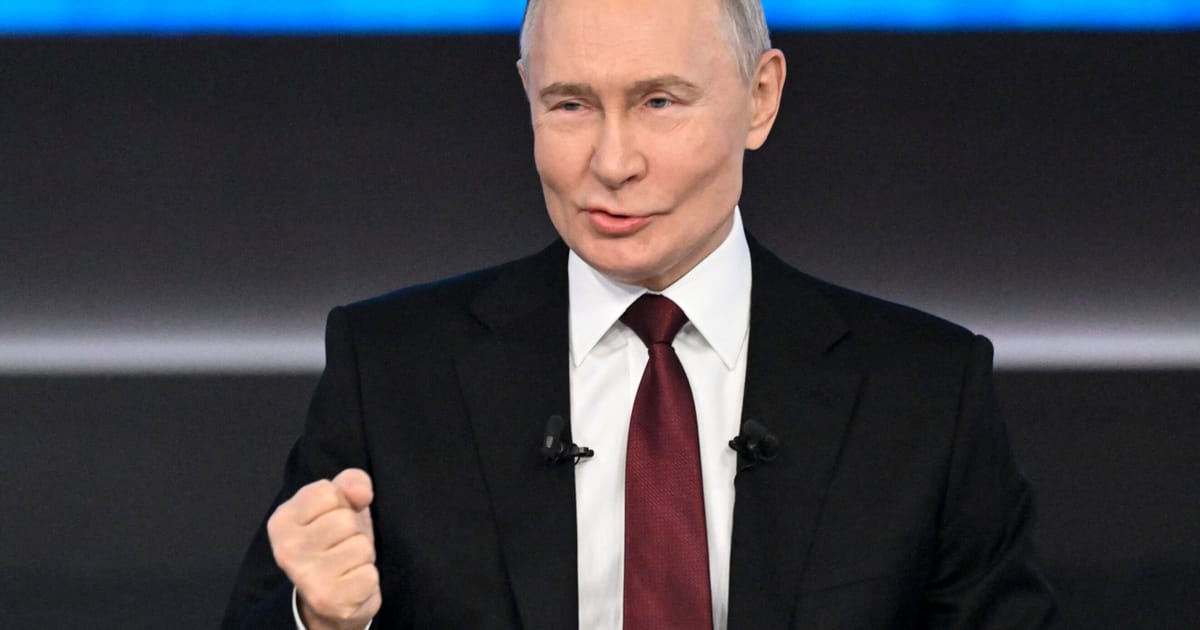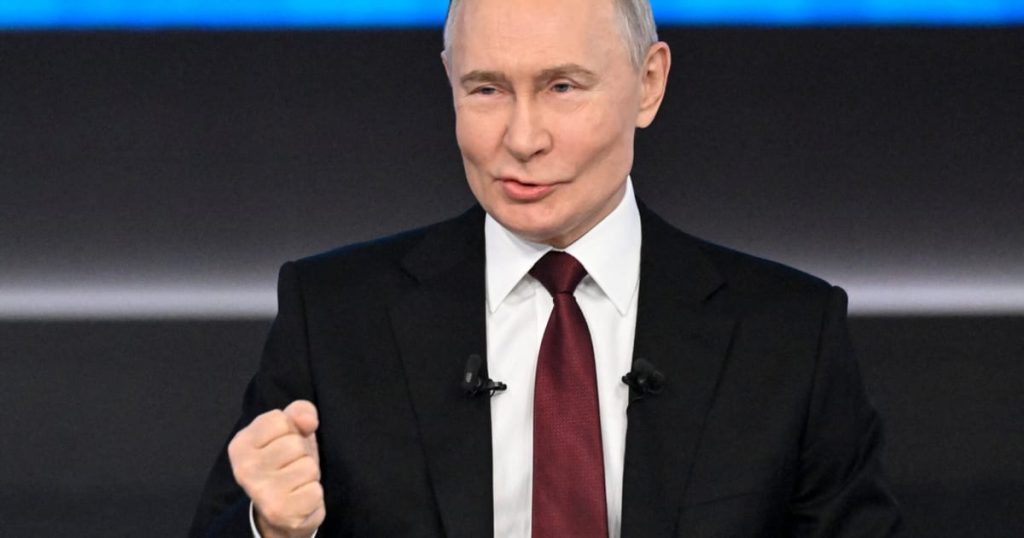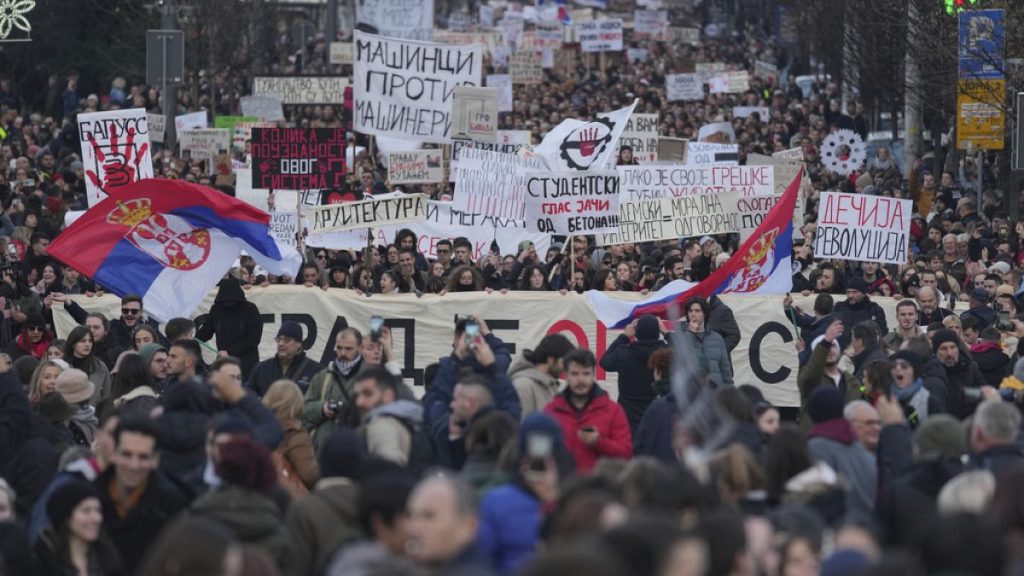BUCHAREST — It would be hard to find a town more central to the West’s efforts to resist the malign intent of Russia than Mihail Kogălniceanu, on Romania’s Black Sea coast.
Heavy trucks thunder along the rainswept road toward the port of Constanța, which has been a vital hub for exporting Ukrainian grain during the war. On the edge of town, they pass a NATO airstrip, now a muddy construction site in the process of being transformed into the alliance’s biggest base in Europe. Some 10,000 military personnel will move in by 2030.
And yet, when the town’s residents cast their ballots in last month’s presidential election, they overwhelmingly voted for Călin Georgescu, the candidate who showed every sign of being the preferred choice of Russian President Vladimir Putin.
Georgescu’s victory sent the country’s establishment into a crisis of confidence. The anti-Brussels, NATO-skeptic ultranationalist sprang seemingly out of nowhere last month to seize pole position in the election’s first round.
After the incumbent President Klaus Iohannis released secret files alleging the vote had been compromised by a likely Russia-backed “hybrid” attack — and a vast TikTok influence operation — Romania’s Constitutional Court canceled the entire election.
Romania is still reeling from Georgescu’s rapid rise and fall.
The country’s political parties are squabbling among themselves as they try to stitch together a coalition government following a separate, parliamentary election. Only once that exercise is done will Romanians know when they will be able to vote again for a president.
Georgescu’s political future is equally uncertain; many believe he could be disqualified from running again on the basis of the court’s annulment ruling.
Political analysts, historians and investigators in Bucharest and Brussels will likely be arguing for years over how much the Kremlin or a TikTok-powered influence campaign facilitated Georgescu’s antiestablishment eruption.
But for many ordinary Romanians, at least part of the reason behind his rise is already clear — and it’s one with important implications for other Western countries.
The answer, said Oana Popescu-Zamfir — director of GlobalFocus Center, a foreign policy and security think tank in Bucharest — has less to do with a suddenly discovered love for Russia or the far right than with deep disappointment at what is perceived to be a distant and uncaring political class.
“People have developed this idea that everything is manipulated anyway, everything is decided behind closed doors and what you see and who you vote for is much less important,” she said. “People’s perception is that political life and institutions are dominated by these murky networks of interest … I think to a large extent that perception is correct.”
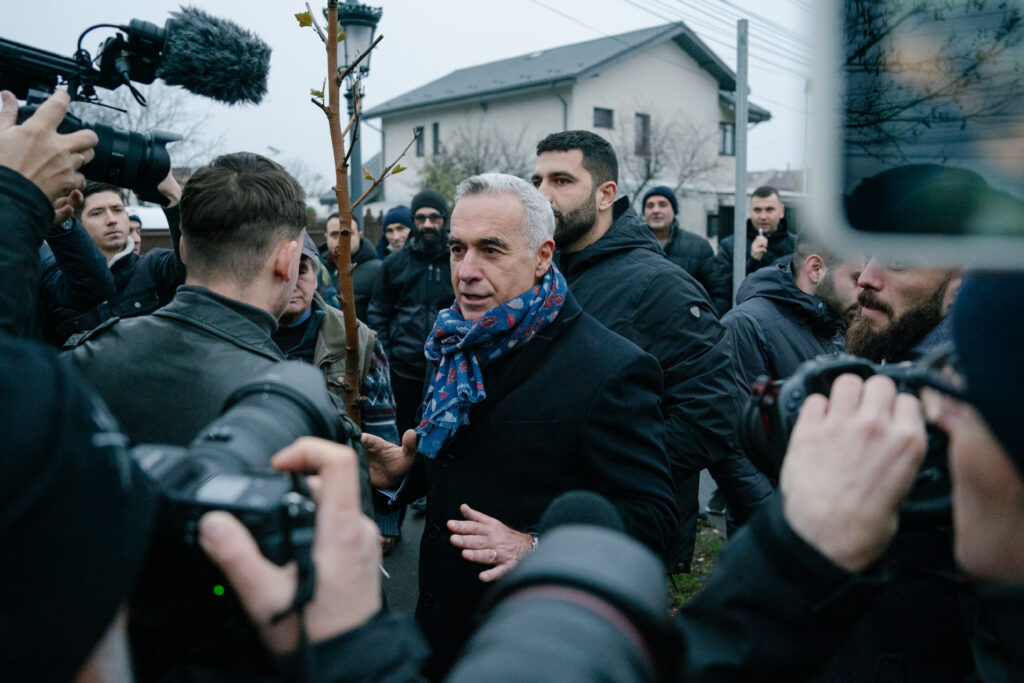
So sudden and unexpected was Georgescu’s rise that liberal Romanians were left scrambling to trawl through his online postings to try to figure out what he stood for and where he had come from.
How could the unknown maverick — with no political party, no mainstream media profile and zero campaign infrastructure — be on course to win the presidency? Was the election fair or a fraud? How had the security services failed to spot what was happening?
Georgescu, 62, who had carried out a campaign primarily on social media sites like YouTube and TikTok, was an anti-European Union and NATO critic who had praised Putin as a patriot and hailed the medieval warlord Vlad the Impaler (aka Dracula) as a national hero. His past statements read like a checklist of alt-right X’s greatest hits.
Georgescu was a vaccine skeptic. His campaign opposed extending LGBTQ+ rights, and, like Putin, he loved judo. He had expressed his admiration for Romania’s pro-German World War II leader Ion Antonescu, who carried out the Holocaust, and was supported by neo-legionnaire groups with their roots in the Iron Guard, the 1930s fascist paramilitary organization.
He had publicly denounced the EU, described a United States missile shield located on Romanian soil as a national shame and vowed to end all assistance to Ukraine. He frequently invoked his faith, declaring that he had no campaign expenses because “we are in God’s hands.”
In one of his most successful social media videos, he wore a traditional Romanian shirt and rode a cantering white horse. The image was of a man who embodied his homeland — the fertile earth, the mountains and mythology of Transylvania, the folkloric inheritance of a proud nation. He had no party, he said, because his party was Romania.
It didn’t take long for Romania’s political establishment to start to punch back.
In the days after Georgescu’s shock victory, suspicions grew that he had benefited from a Russia-backed interference operation, a notion that President Iohannis encouraged when he declassified intelligence files a few days before the second and final round of voting was due to begin.
The documents were incendiary, alleging the country was under a “hybrid” attack from Moscow and that Georgescu’s anti-Western messages had been amplified by a bot-like army of 25,000 TikTok accounts that burst into action at the last moment to galvanize his supporters. They also cast doubt on the legality of the financing of his campaign.
Meanwhile, liberal Romanians flocked to support Elena Lasconi, the Save Romania Union party candidate whom he was due to face in the runoff vote.
A center-right liberal who championed her pro-European credentials, Lasconi provided a clear alternative, but lacked political weight: Her only real experience of high office was her time as mayor of a small town 150 kilometers away from Bucharest.
And yet, on Dec. 5, thousands of people took to the streets to pledge their backing for Romania’s “European” identity, chanting “freedom” and waving EU flags alongside their national stripes of blue, yellow and red. They planned to vote for Lasconi in the final round on Dec. 8.
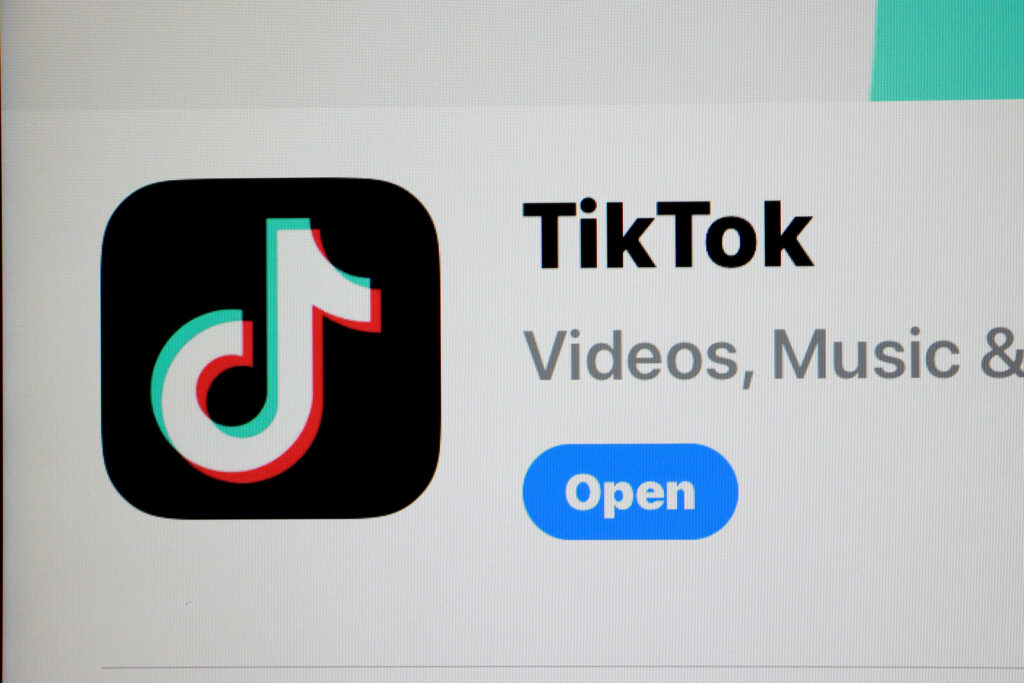
“We are choosing between East and West,” said Aurelia Poderescu, 54, who attended the event. “For us, NATO and the EU means safety for our children and grandchildren.”
Many of those gathered in University Square were young. Some, however, recalled the terror of the 1989 revolution, in which bloody street protests and clashes with the army eventually brought down dictator Nicolae Ceaușescu, but at a high price: 1,100 people lost their lives.
“I was 18 at the time and I could hear people shooting,” said Poderescu. “I have that same fear today. We can’t go back to that time.”
The next day, rain lashed down on central Bucharest, soaking the square where the protesters had gathered. Just after lunch, with the daylight already draining from the sky, Romania’s most senior judges delivered their decisive bombshell.
In a unanimous ruling, Romania’s Constitutional Court annulled the results of the election, citing irregularities in the first round, and raised concerns over campaign finance.
Within hours, the institutions of the state began rounding up those behind Georgescu’s campaign. Mercenaries he hired as his security detail were arrested and found to be carrying weapons in their cars. They were allegedly on their way into the capital, intent on violence.
Police raided the home of a key financial backer of Georgescu. Tax officials launched investigations into Georgescu himself and the small army of TikTok influencers who were allegedly paid to promote his candidacy. Some of them have now fled the country.
To outside observers who feared Romania was about to emulate Hungary and elect another Kremlin sympathizer in the style of Viktor Orbán, the annulment was a welcome sign of sanity.
And yet in Romania, the initial shock at such a draconian step soon gave way to cynicism.
Georgescu urged his supporters not to “give in” and to keep faith. “Today, the Romanian state has trampled on democracy,” he said. “On this day, the corrupt system made a pact with the devil. I have only one pact — with the Romanian people and God.”
His rival, Lasconi, made a strikingly similar statement. “Today is the moment when the Romanian state trampled over democracy,” she said. “God, the Romanian people, the truth and the law will prevail and will punish those who are guilty of destroying our democracy.”
For many ordinary Romanians, the past month has been just another chapter in the country’s complicated — and often disappointing — relationship with liberalism and democracy.
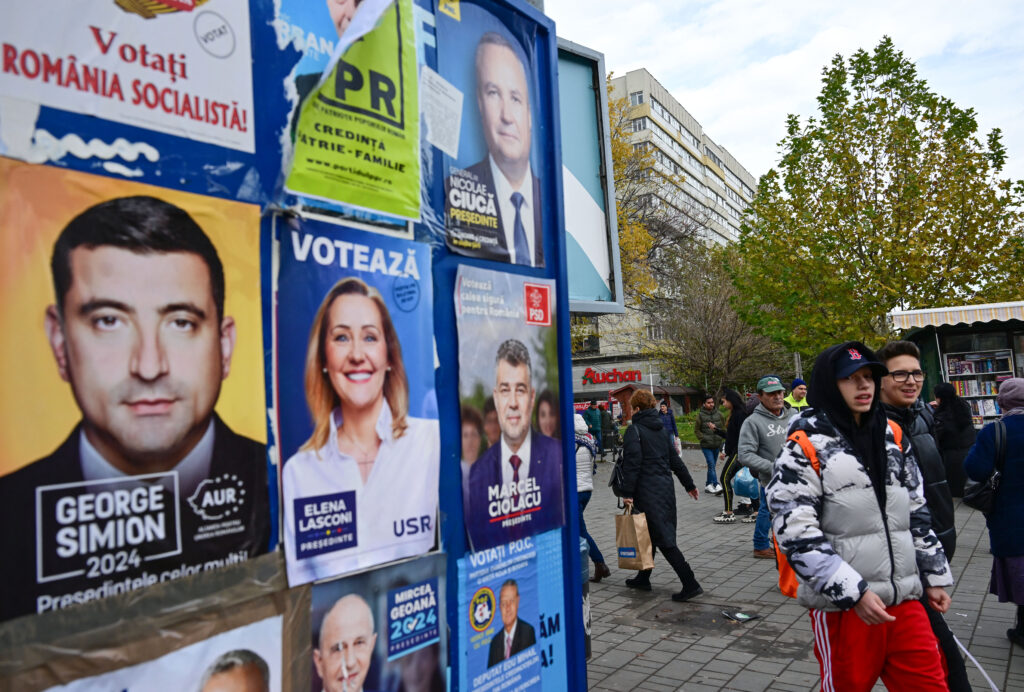
Whatever the role the Kremlin or TikTok might have played in Georgescu’s rapid ascent, his popularity was, above all things, a symptom of a great disillusionment with the political class.
“I think Georgescu is another puppet of a very bad part of our culture right now,” said Miruna Parasca, a 26-year-old architect, a few hours after the court announcement, as she sipped a cocktail with her husband in a bar in Bucharest. But canceling the election was “not good,” especially for those who backed him.
“The better democratic way was to go on with the election,” she said. “We are choosing our president so people have the right to choose.” The “sad” thing for Romania is that there were not better candidates to put to voters. “Corruption is everywhere,” she said with a sigh.
That sentiment — that the entire political class is shady — is a common one. It’s all the more damning for being expressed not with rage, but resignation.
Pervasive cynicism drains the color from conversations about politics in Romania: Nothing has changed and nothing will change, whoever wins. Even Georgescu, a wild maverick to Western eyes, “is not Hitler” so people should calm down, according to Parasca.
The cynicism has its origins in the country’s history.
If outsiders know anything about modern Romania, it’s likely to be that the country rose up against the communist dictator Ceaușescu in 1989 in a revolution that brought his brutal 20-year rule to a violent end. It was a seminal moment in the end of the Cold War, along with the fall of the Berlin Wall, that defined the defeat of communist ideology.
Yet now, many Romanians wonder whether the revolution was real. The period is often referred to as the “so-called revolution.” The party that took over from Ceaușescu, the National Salvation Front, included figures who had previously featured inside his regime. Initially, they promised not to stand in the country’s first post-communist election, but then the party broke its pledge, closed ranks and kept control.
A version of democracy followed, but elections during the 1990s were criticized for corruption and vote rigging. While Georgescu’s gate-crashing of the 2024 contest was an extreme and dramatic case, the truth is Romania has never enjoyed a golden age of post-communist democracy.
While the country joined the EU in 2007, the rewards from being part of the bloc have not been fully realized in the eyes of some Romanians, with political corruption and incompetence continuing and inequality getting worse.
EU membership remains popular, but people’s expectations that it would solve the country’s problems were too high and many feel let down. European leaders in Brussels and elsewhere knew Romania had a long way to go to tackle corruption and enforce the democratic standards that the bloc expected. But they wanted to encourage the reformists in Bucharest and prevent the country from slipping back under the influence of Moscow.
“We fooled ourselves,” said Popescu-Zamfir, who, along with her colleagues, has spent recent years sounding the alarm that support for Western-oriented foreign policy in Romania was on “shaky” ground and could no longer rely on “a significant majority.”
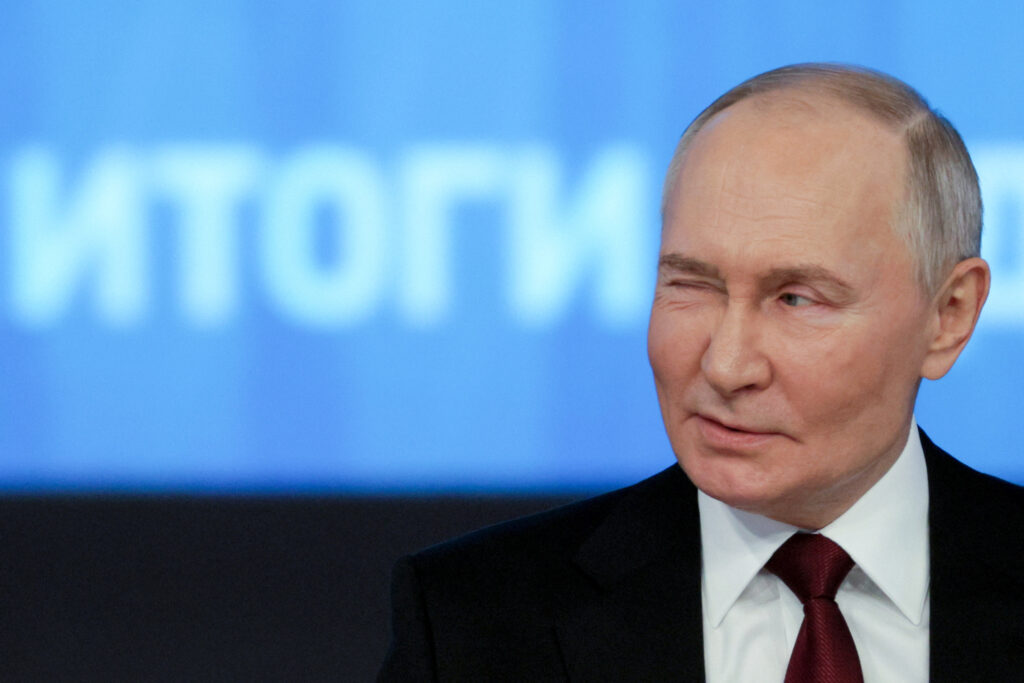
Domestic politics hasn’t changed much, either. The National Salvation Front, which took power after 1989, went on to spawn the Social Democratic Party (PSD), which ever since has been Romania’s dominant political force. Many in the country have noted that it was the PSD that appointed the majority of the members of Romania’s Constitutional Court.
Back in Mihail Kogălniceanu, the residents are largely unimpressed by their country’s political drama.
On the main road, a car parts store is decorated for Christmas with a string of purple lights, winking on and off in the damp, gray afternoon. Inside, Florian Emil, 56, sits at his desk while his 88-year-old mother, Elena Mitrofar, occupies a chair to the side.
“We are choosing between two bad things,” said Emil. “Mrs. Lasconi is not presidential material. And on the other side, there is a lot of controversy.” His mother is more forthright about Georgescu. “He is a traitor and should be treated as such.”
A little further along the road, serving customers in a bistro, Cosmina Dumitru, 17, says some residents feel “protected” living next to a NATO base. But others worry the military buildup might make the town a target. With Ukraine close by, and debris from the war landing on Romanian soil, it’s an understandable concern.
When it comes to the election, however, she shrugs. She is too young to take part, she explains, but even if she could vote, she would not vote for any of them. “They only do things for themselves, not anything for this country.”
